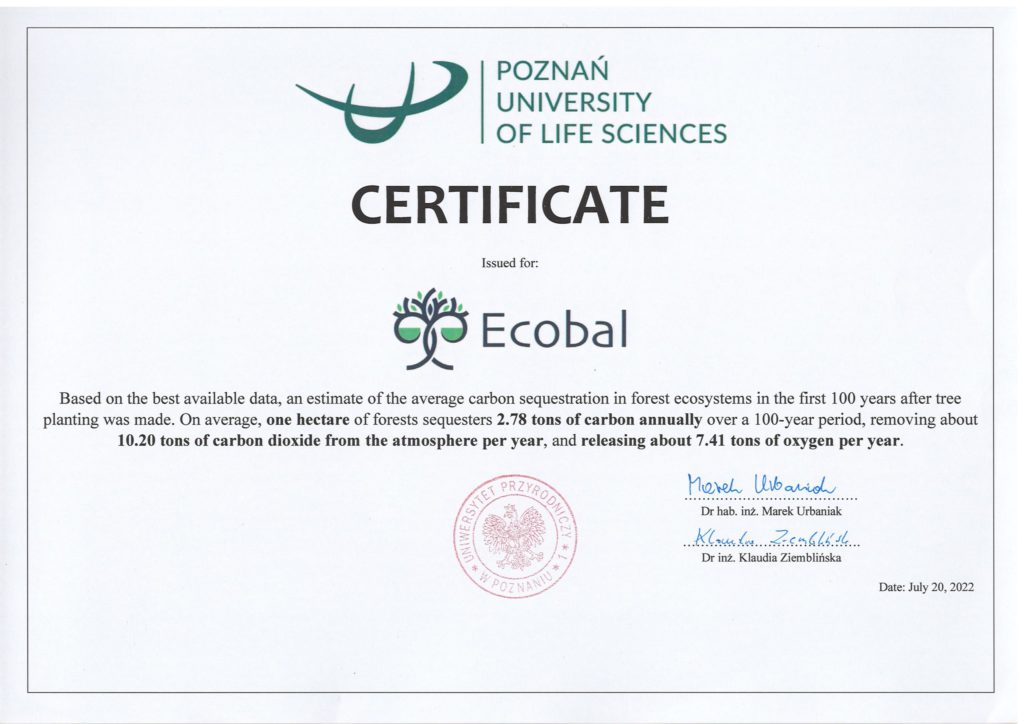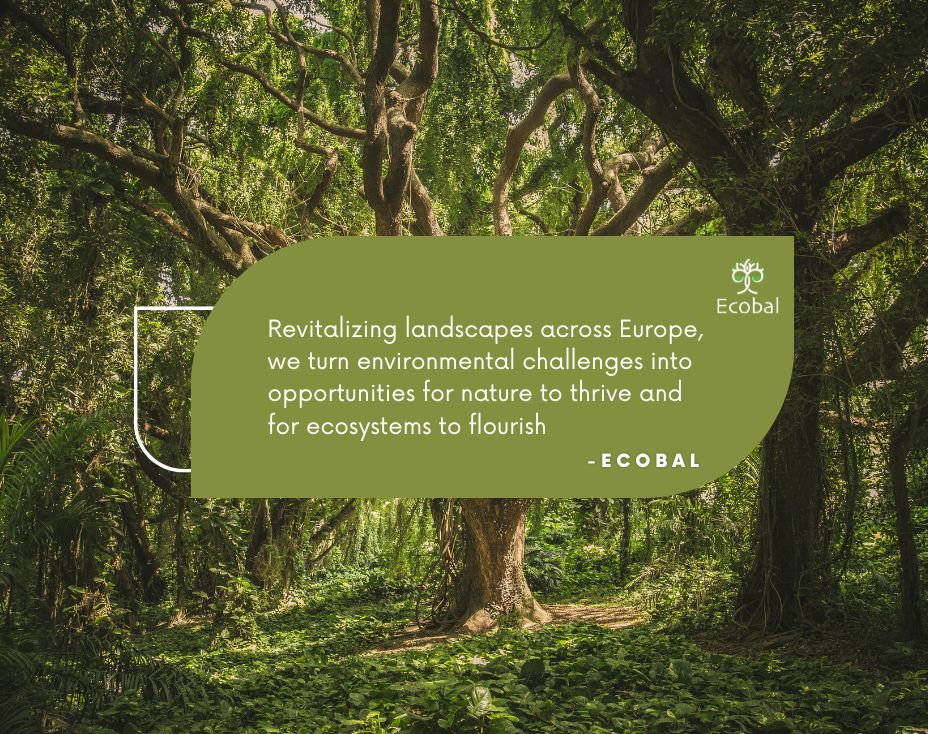Success Stories: Ecobal’s Most Impactful Reforestation and Afforestation Projects
At Ecobal, our vision is to create a future where ECOlogical BALance is a foundational element of a sustainable world. Our mission is to restore former agricultural and barren lands into thriving natural habitats that sequester significant amounts of carbon dioxide (CO2) and methane (CH4) from the atmosphere. By improving soil health and planting native trees and other vegetation, we aim to combat climate change, promote biodiversity, and support a healthier environment.
Today, the world faces critical environmental challenges such as climate change, pollution, and resource depletion. Consumers are more aware than ever of these issues and seek sustainable alternatives to reduce their carbon footprint. However, many existing solutions are either too costly or impractical for everyday use. Ecobal fills this gap by focusing on nature-based solutions that prioritize conserving forests, expanding natural ecosystems, and envisioning future initiatives like natural burials and beehive installations. Our competitive advantage lies in empowering individuals and businesses of all sizes to reduce their carbon footprint with certified, reliable methods.
How Ecobal is Making an Impact
Ecobal is taking decisive actions to reduce ecosystem loss, restore degraded lands, and improve ecosystem management. These initiatives contribute to:
- Reducing Greenhouse Gas Emissions: Our restoration projects help decrease greenhouse gas emissions by capturing and storing CO2 and CH4, aligning with global climate goals like the Paris Agreement.
- Storing and Capturing Carbon and Methane: By planting native vegetation and revitalizing ecosystems, we enhance carbon and methane sequestration.
- Mitigating Climate Change: Our initiatives help build resilience against climate impacts by restoring natural landscapes and promoting ecosystem services that support sustainable land use.
- Enhancing Biodiversity Conservation: Our projects provide critical habitats for endangered species and promote biodiversity, supporting a wide range of plant and animal life.
- Building Resilient Ecosystems: We improve ecosystem services such as water purification, air quality maintenance, and soil health.
- Turning CO2 into Valuable Commodity: Our approach includes transforming CO2 from being an environmental challenge into a tradable asset.
Ecobal’s Milestones and Achievements
Since our inception, Ecobal has reached several important milestones, including:
- Establishing Nature Spots in Five EU Countries: We manage 155 hectares of Nature Spots across France, Italy, Poland, Spain, and Romania, creating biodiverse ecosystems that support local wildlife and vegetation.
- CO2 Storage Capacity: Ecobal’s Nature Spots collectively store approximately 1,581 tons of CO2 and release about 1,150 tons of oxygen per year.
- Certified Carbon Absorption: The University of Life Sciences in Poznań confirms that each hectare of forest can absorb 10.2 tons of CO2 and produce 7.41 tons of oxygen annually.

Notable Reforestation and Afforestation Projects
Here are some of Ecobal’s most impactful projects across Europe:
Poland: In the area near Radzanów, Ecobal revitalizes a forest damaged by a storm. Polish forests, which primarily grow on poor soils due to historic agricultural development, feature a variety of species, including pine, oak, and deciduous trees. This project aims to improve the ecosystem’s resilience.
Romania: Near Padure, Ecobal’s reforestation efforts focus on one of Europe’s last ancient forest areas. Romania hosts some of the continent’s largest and most diverse forests, featuring species such as black locust, European beech, and Norway spruce.
Italy: On the Isle of Sardinia, Ecobal is transforming an old vineyard and forest area back into its natural state. Sardinia’s varied landscape includes native species like cork oak and Aleppo pine.
France: Located near the Mediterranean Sea, our project in the Cevennes region involves restoring forest areas that were initially reforested in the mid-1980s.
Spain: In Murcia and Abanilla, we’re transforming former orange plantations back into natural forest ecosystems, which helps address biodiversity loss caused by recent wildfires.
A Revolutionary Approach: The ECB Token
A key aspect of Ecobal’s success involves ECB Dynamics, an Ecobal entity dedicated to blockchain technology, which developed the ECB Token. This innovative token allows individuals and businesses to own, store, and trade CO2 as a decentralized, valuable asset. Think of the ECB Token as a battery warehouse—but instead of storing energy, it stores CO2. The stored carbon can be released and traded when market conditions are favorable. By staking ECB Tokens, users can accumulate CO2 in their wallets, unlocking new opportunities for carbon management.
The Road Ahead: New Initiatives and Projects
Looking to the future, Ecobal plans to introduce new projects, such as developing natural burial sites and installing beehives to support pollinator populations. These initiatives reflect our commitment to providing sustainable, nature-based solutions that extend beyond carbon sequestration.
About the Author:
This article is written by Dr. Amisalu Milkias, Ecobal’s CO2 Project Specialist. Dr. Milkias is a leading voice in restoration ecology, dedicated to advancing nature-based solutions for climate resilience and biodiversity enhancement.


